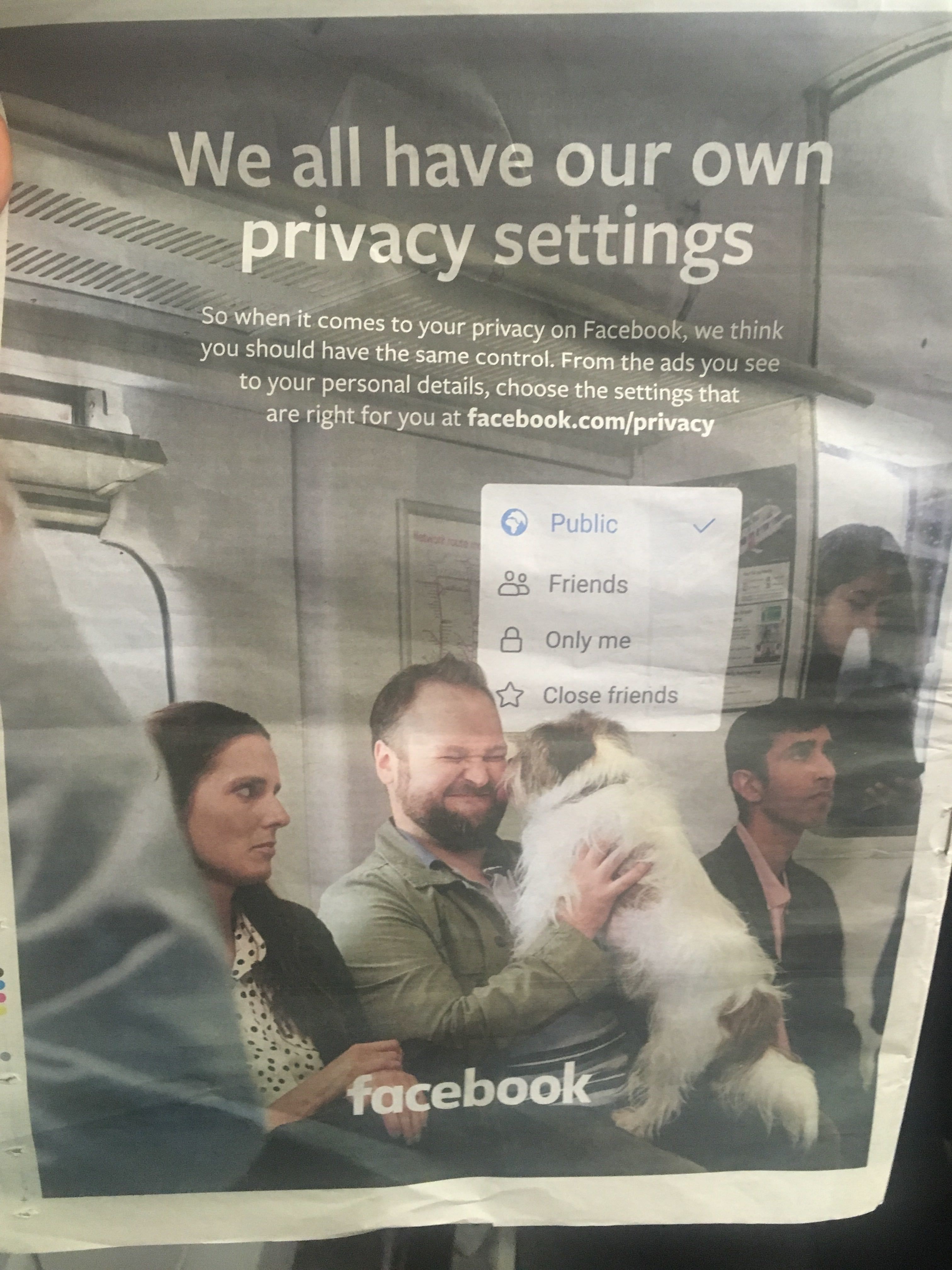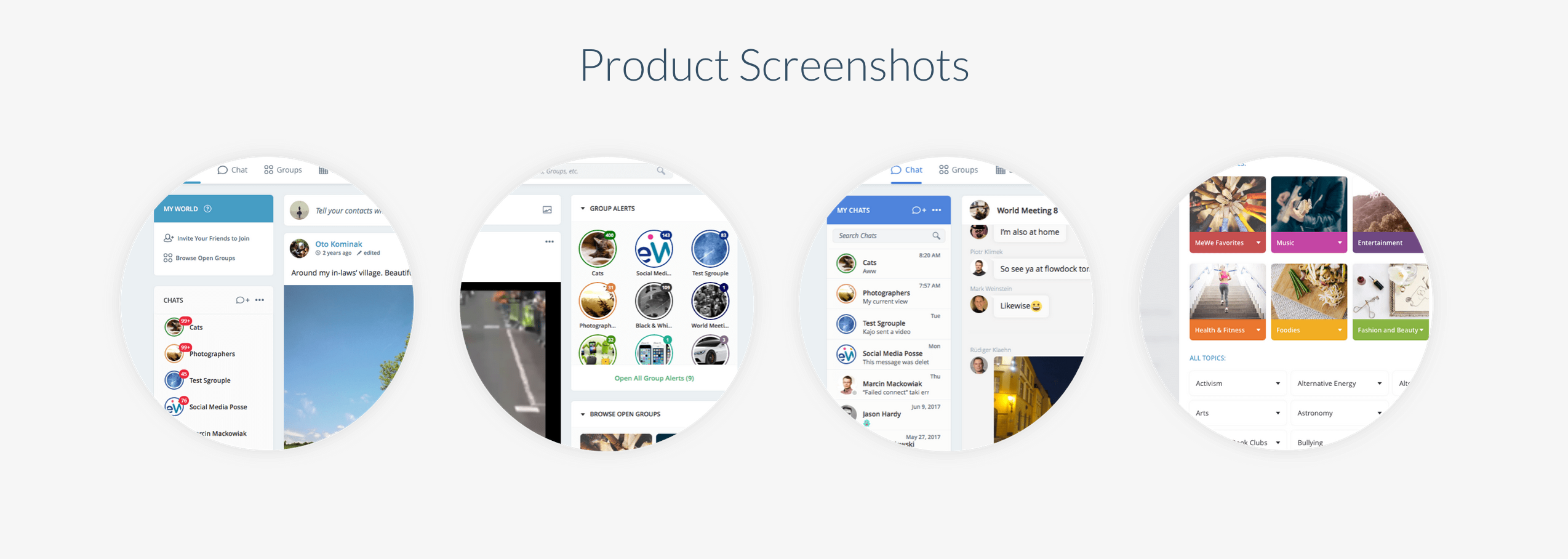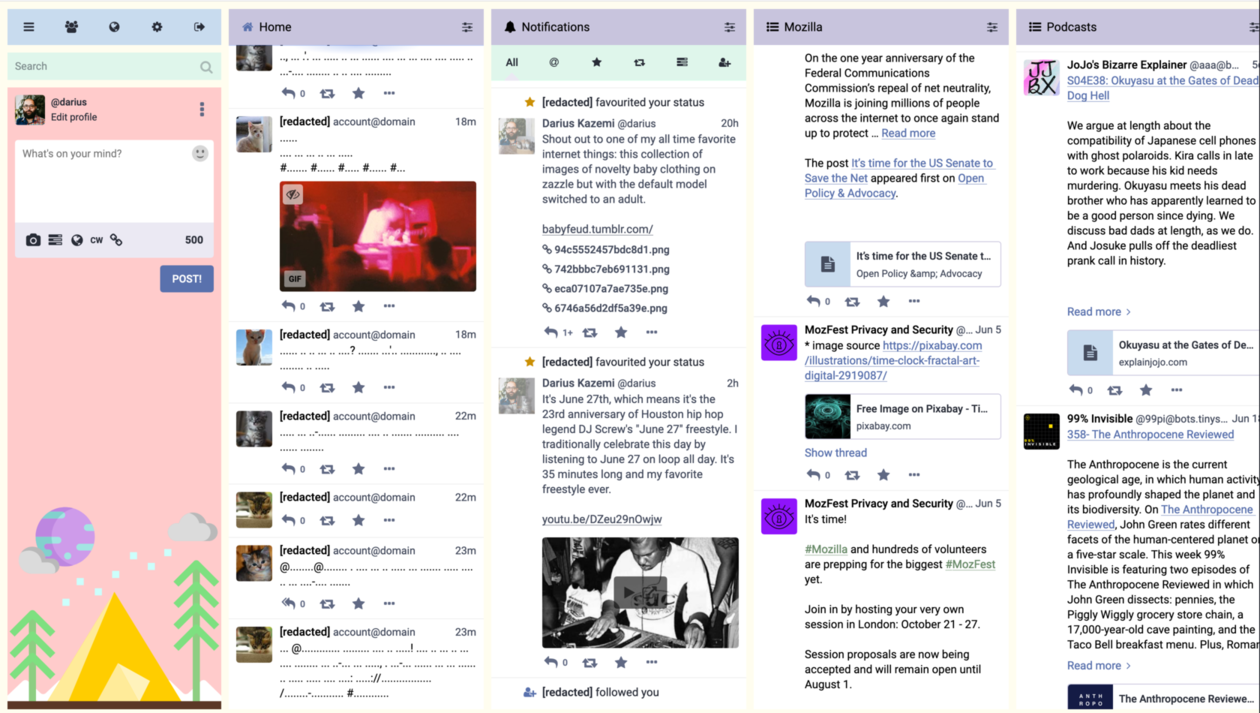On the 15th of October 2019, #deletefacebook was the most popular hashtag on Twitter.
But why? During this time, it was revealed that Mark Zuckerberg was having off-record meetings with conservative journalists in the US. Essentially what this did was prompt a new wave of distrust to wash over communities who may not consider themselves ‘conservative’. This new, short-lived, distrust sparked many to once and for all delete Facebook.
🤔 Before we go any further, can one really ‘delete’ Facebook? Probably not — not without also deleting WhatsApp, Instagram, and Messenger. The latter of which is very cleverly a ‘separate’ thing to Facebook. It has its own domain, and lots of people rely on it as a chat app, without ever using Facebook.com.
✨Have you deleted Facebook? Skip to see some alternatives✨
There is a tension we are not seeing…
Even if you delete all Facebook-owned apps in the name of data privacy, it won’t matter — non-Facebook users get tracked by Facebook all the time. This is why they are such a successful ad network.
Furthermore, free services like Facebook are useful and attractive; people enjoy using them which is part of why such platforms are so popular — this is why people choose not to delete Facebook.
 Very telling that Facebook are running ads on physical newspapers specifically about meaningless ‘privacy settings’
Very telling that Facebook are running ads on physical newspapers specifically about meaningless ‘privacy settings’
😬 Here’s the tension: besides what Facebook has to offer, is there another platform out there that contains most of your friends and family, and is also a nice easy way to share things like holiday photos or events you are running or anything else that requires some level of broadcasting?
Nope — that doesn’t exist. The last social media platform successful as this was Myspace, and Facebook blew them out of the water. We use Facebook’s products because they are convenient and useful, and those qualities are seen as more valuable to us than our privacy unfortunately.
We use Facebook's products because they are convenient and useful, and those qualities are more valuable to us than our privacy.
There also appears to be no viable alternatives. If everyone starts deleting Facebook, we will find ourselves in a very strange place in time — a place where people want social media, but they don’t want Facebook; so they get nothing.
But seriously, what would happen if everyone deleted Facebook tomorrow?
Before we dig into this, it’s important to remember that Facebook did (and still do) position themselves as having solutions to problems that don’t exist. We weren’t living like soulless peasants before Facebook came along — you just had a Myspace page instead. Or even better… Geocities 😍.
We don’t have trouble building communities without Facebook either. Is Github not a community? Reddit? Discord? Even Wikipedia counts as social media.
What makes Facebook and it’s products useful or powerful is data — and this is the thing that also brings in profit. To get data, you need users. So what would happen if all those users disappeared tomorrow?
If they've already had their eyes on your for nearly a decade, they have all they need to predict your behaviour in the future.
Not an instant collapse of everything Zuckerberg has built, but more likely a slow, corrosive death while they scramble to get anything done without all that fresh user data. But wait, do they even need more user data? Not necessarily, if you bare these two things in mind:
☝️ THING ONE: Big tech companies are powerful and influential, and hard to get rid of: Facebook don’t need you to be a user of Facebook to keep the lights on, they can just acquire more companies to expand their knowledge and resources.
✌️ THING TWO: With enough computational power, gathering new data is not necessary — you just need a lot of it already (which Facebook has), which you can use to infer more. E.g. if they’ve already had their eyes on your for nearly a decade, they have all they need to predict your behaviour in the future.
🤟 BONUS THING THREE: (Everyone deserves a bonus). By the time no one uses Facebook for social media anymore, we could very easily be using it for other things. Like controlling drones with your eyeballs. That sounds far-fetched but they have acquired a company that develops tech to control computers with your brain.
Okay I’ve deleted Facebook and now I want an alternative
💃🏻 Fun fact: even splitting away from Facebook to other social networks who exploit user data in the same way would be better than centralising all data (and therefore power) in one place. The key step after that would be complete and total reform of the way websites monetise.
 MeWe looks a lot like Facebook — and why shouldn’t it? Facebook has worked for us for this long
MeWe looks a lot like Facebook — and why shouldn’t it? Facebook has worked for us for this long
MeWe claim to be built with privacy in mind from the very beginning — their website boasts that your private life is #not4sale. Looking at the product screenshots, it looks very much like Facebook. They use contextual ads, and charge you for extra features voice messaging and… encryption.
Minds is open source and owned by the community; it has more of a content-creation feel as Medium might, but has all the same basics as Facebook: timelines, profiles, groups, etc.
Diaspora is interesting because it relies on independent servers — this means that everything is not stored in one centralised place, but in many different ‘pods’. You pick a pod that suits you, and sign up to that. Or, make your own pod, of course.
 This is how Friend Camp looks — a bit like TweetDeck, actually
This is how Friend Camp looks — a bit like TweetDeck, actually
Finally, Darius Kazemi put together a great resource to help you run your own social network. If you have the time and the energy, you could put together your own platform for you and your friends, just as Darius did with Friend Camp.
💅 We don’t need Facebook — but we do need social media
It seems Facebook may have created more problems than solutions — and then tried to feed us further solutions to solve those problems, such as an ‘emphasis on private interactions’, which is not the same thing as actual privacy.
The other problem is that we are sort of addicted to social media — that’s okay though, cultivating online communities is important, and excellent 👌. All we need to do is change the way in which we find and grow these communities — and start paying for them with something else besides our personal data.
